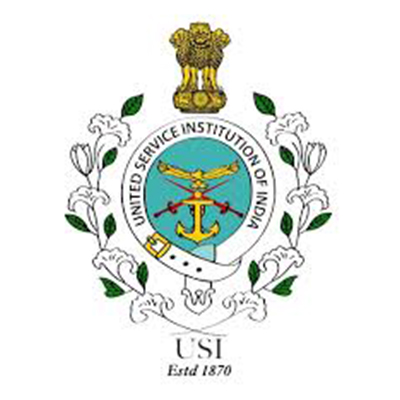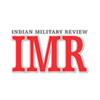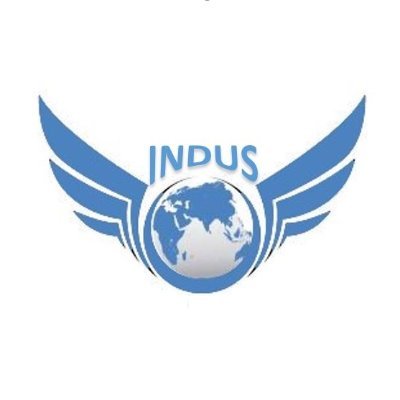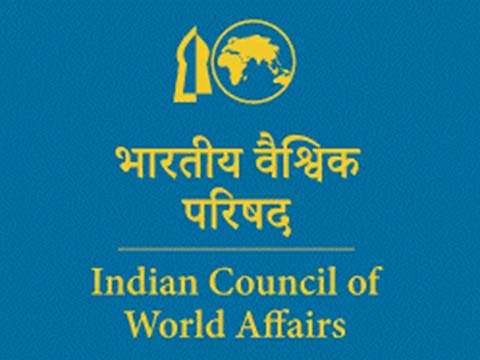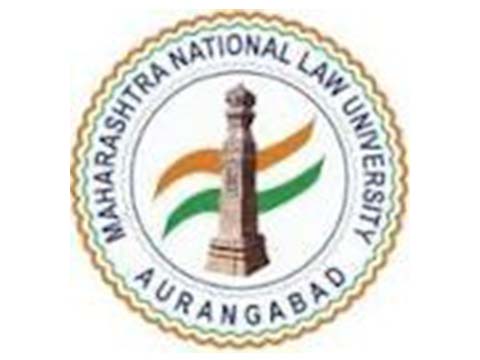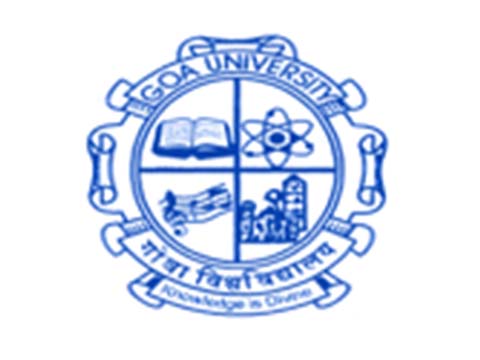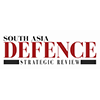ENVIRONMENT SCAN: 16-31 AUG 2021
INDEX
(e-Scan 16-31 Aug 2021)
|
S No |
Rank & Name |
Country |
Page(s)
|
|
1. |
Brig RK Bhutani (Retd)
|
CHINA (Geo-Strat, Geo-Politics & Geo-Economics) |
2-4 |
|
|
Gp Capt GD Sharma, VSM (Retd) |
UNITED STATES |
4-5 |
|
|
Col Siddhartha Sharma
|
AFGHANISTAN |
6 |
ENVIRONMENT SCAN: 16-31 AUG 2021
CHINA (Geo-Strat, Geo-Politics & Geo-Economics)
Brig RK Bhutani (Retd)
Downgrading of China’s Economic Growth as Challenges Mount in Third Quarter.
Some of the big problems China is facing right now are:-
(a) In July, the major city of Zhengzhou suffered from serious flooding. Zhengzhou is known for its smartphones and semiconductor production. The floods hit factory operations and intensified chip shortages. As a result, higher prices are expected for hand-held devices.
(b) A month later, China suspended some sea and air freight around Shanghai due to a new breakout of Covid-19. This resulted in major congestion affecting the import of commodities and the exports of goods and parts. Conditions are not expected to ease there until late September to October. The result will be increased global freight prices which could have a knock-on effect for goods in the west.
(c) On top of that, the government is implementing reforms in various parts of the economy.
(d) Covid-19’s localised social distancing measures are likely to continue into next year as new variants emerge. But there’s more. The Chinese government has recently announced a clampdown on the technology and education sectors. This is now putting pressure on the job market and subsequently consumption growth. Consumption weakness is likely to continue.
(e) Last month, private education centres were banned from making a profit. This is an industry worth around $100bn a year. Exact figures on the numbers of people who lost their jobs are not available but there are estimated 90,000 in the Beijing area alone. The question is whether the young people in this industry will be able to earn as much as they did before; it’s unlikely. Spending from this group will therefore be lower on items from rent to high-end consumer goods.
Impact on China’s Economy.
(a) Semiconductor chips are key to manufacturing growth as is the technology war. Chip shortages will continue to affect factory output growth. This is already evident in automobile investment, production and sales. And it’s becoming apparent in other sophisticated electronic goods which have many chips in just one product such as production equipment and smartphones.
(b) This does not necessarily mean slower profit growth for manufacturers. Chip prices have gone up on a year-on-year basis as have the prices of the products that use the most chips. This might be the explanation for higher industrial profits, besides low base effects, helping industrial profit growth to jump above 50% year-to-date, year-on-year.
(c) The main risk is the delay to 5G infrastructure work globally from reduced tax revenues and fewer available workers due to Covid. This could result in smaller orders of semiconductors received by factories.
(d) The “technology war” is another risk for China’s manufacturing sector as the US has increased the number of Chinese companies on its entity list.
(e) President Xi has tasked Liu He, the Vice-Premier, with leading the advancement of technology, especially semiconductor chips which shows just how important this goal is. But there will be no immediate results. Fiscal support for technological advancement will first go into investment rather than production.
(f) China industrial profits are strong due to negative base effect.
The central government will try to accelerate infrastructure projects to support economic growth. But this needs direct financial support from the central government as we expect some local governments will still face high credit costs, delaying their bond issuance. Infrastructure in China means “new infra” as well as “traditional infra”. Both are treated as important growth engines by the Chinese government. For new infra, China has yet to complete the coverage of its 5G network. For traditional infra, China has many planned projects for railways and highways to link up cities across provinces. To achieve a reduction in carbon emissions, China also needs to build more solar and wind electricity generators.
Infrastructure will be the stabiliser of Chinese growth. Infrastructure and transportation investments have been slow.
Environmental: Achieving Net-zero Carbon Emission. China is fine-tuning the momentum of its carbon reduction. China is completely serious about achieving net-zero carbon emissions by 2060. And anti-pollution policies should be expected in all industries, especially for medium to highly polluting industries.
Combining the risk and opportunities, ING Economic And Financial Analysis Team has scaled down China’s GDP growth forecasts for the second half of 2021. Chip shortages and COVID are the two main reasons. GDP growth is expected to slow to 4.5% YoY and 5.0% YoY in 3Q21 and 4Q21, respectively, with the full-year forecast of 8.9%, down from 9.2% back in July.
Valuing of China Assets No Easy Task After $1 Trillion Wipeout. China’s months-long regulatory crackdown has included big names in e-commerce, the gig economy, exam cramming and most recently online insurance. Close to $1 trillion in market value has been wiped off China Inc since February.
According to Paul O’Connor, head of multi-asset at Janus Henderson, “Investors have been jolted and this will weigh heavily on the outlook for profits, valuations and investor sentiment in China.”
Analysts bullish on Chinese stocks heading into the tumult are now assessing the damage.
In March, before the latest crackdown, the average consensus 12 month share price target for stocks in the MSCI (Morgan Stanley Capital International) China Index, was about 40% higher than a year earlier.
“The process of earnings downgrades and ratings downgrades has barely started,” said Janus Henderson’s O’Connor.
PROBLEMS VS POSSIBILITIES.
Future returns will depend much more on careful assessment of risk.
While some damaged sectors are likely to bounce back over time, others, like tutoring, which the government now wants to be nonprofit making, almost certainly won’t.
The hit has been painful. Around $2 billion was pulled out of equity funds with significant China exposure in the first week of this month alone. Morningstar figures point to China-focused funds nursing at least 7% negative returns. For context, they made around 13% on average for the past five years.
BUST OR BOON?
It has not only been stocks that have suffered. China’s giant bond markets have been roiled by debt crises besetting firms such as Huarong and Evergrande (3333.HK), with the latter’s problems coming as the government seeks to slash leverage in the property sector.
Here the moves point to rising distress. Chinese credit’s Z-score, a measure of market volatility, reached 0.7 standard deviations above its 15-year mean last month, from 1.8 in January. Typically, a score below 1.8 suggests looming bankruptcy.
UNITED STATES
Gp Capt GD Sharma, VSM (Retd)
A day after U.S. troops left, the president (in his speech to the nation) called the mission to evacuate Americans and Afghan allies an “extraordinary success” and forcefully defended ending the United States’ involvement.
Comments. America withdrew 120000 American citizens and Afghani national who assisted US forces and now faced threat to their life for partnering with the Americans considering that Taliban will not be forgiving even though the group promises that it will not take revenge. As per President Biden 80% of the personnel have been brought back leaving 20% for whom he has committed, eventually would be brought to America.
America could not be expected to remain in Afghanistan forever. No other nation has taken such commitment. History is replete with examples where invaders occupied the nations. India’s occupation by the British is a painful reminder of this fact. America and its allies did invade but, to fight against terror. It could be matter of debate whether withdrawal should have happened earlier or later but, no one should question their commitment especially due to the fact that most nations dreaded US withdrawal and wanted US to continue because of their stabilising presence. All other who are criticizing would not spare money and efforts as US have done. Manner of withdrawal could however, been better planned to avoid ensuing mayhem.
Biden in his speech said that to fight terror in future, US will use over the horizon capabilities without boots on grounds. His perception is that competing forces (China and Russia) would want US to remain bogged down in Afghanistan is correct. It is well known how China has taken advantage of US preoccupation in West Asia in the past decade and surreptitiously remained engaged in reclamation and expansion of Islands in the South China Sea and acquired capacity to challenge US in military and economic prowess.
The declaration that in future US will continue the policy based on Human right and would not undertake military deployment but would employ diplomacy, economic sanctions and rallying with world support; may be interpreted that US may not join in military engagement to help even its allies such as Japan and those who bank on US protection like Taiwan; is a matter of worry for them.
US believe that Taliban is against ISIS-K and intends to seek Taliban cooperation to target them. This however, is not supported by evidence since Taliban did not stop ISIS-K bomber to Kabul airport. As per Taliban, they had warned of ISIS-K attack on Kabul Airport. If they were aware then what withheld them from stopping it. It could be Taliban’s ploy to seek US support.
The recognition of Afghanistan may not happen very soon as the group is facing opposition from Panjshir resistance group led by Ahmed Masood. Even otherwise, during previous Taliban’s rule from 1996-2001, their government was recognized by just three nations i.e., Pakistan, Saudi Arabia and UAE. This time, only Pakistan, China, Russia and Turkey have shown inclination till now. US stance is that there is no formal transfer of power hence, they have not clearly given any hint but, most nations will wait till there is clarity on style of Taliban’s governance. State of Afghanistan’s Economy will play major role hereafter. US will have sway on Taliban because not only it has frozen its economic assets in US and some gold reserve but also exerts influence on IMF. Past conduct of China and Russia do not show that Taliban will get much help from them. Even a trade deal could fructify after situation gets stable. After all, China had in 2007 concluded a $2.8 billion deal for copper mining but, it has not been able to mine till date.
Further, what would be US stance on Indo-pacific. After all, US mainland is not threatened by the Chinese military might but, the ASAEN states which are central to the Indo-Pacific policy are alone threatened and would US now intervene to ward off the Chinese threat because diplomacy and sanctions alone will not work against China.
AFGHANISTAN
Col Siddhartha Sharma
News/Development.
Taliban settles down in Kabul with an announcement of Government formation imminent. Abdul Ghani Baradar, the founding member of Taliban is said to be the likely president with Haibatullah Akhundzada to be the Supreme Leader / guide, similar to the system in Iran. Islamic Emirate of Afghanistan is set to be the new name for Afghanistan.
Taliban is seeking to get recognized by the world. China, Qatar, Russia, are the major powers likely to recognize Taliban in near future. UK kept scope of dialogue open with Taliban but unlikely to recognize the new regime. Qatar is assisting Taliban to restart Kabul Airport. Iran has also resumed supply of oil to Afghanistan.
Deepak Mittal, Indian envoy to Qatar met Sher Mohammad Abbas Stanekzai, the head of the Taliban’s Political Office in Doha. Stanekzai had received training in an Indian military academy as an Afghan officer in the 1980s. Meanwhile LET chief Mohammed Hafiz also met Taliban leaders to ask assistance for Kashmir. Taliban statement however was non committal. They mentioned border dispute between India and Pakistan was a bilateral issue, however nothing specific was mentioned about Kashmir.
Fighting between the Taliban and resistance forces has intensified in the northern province of Panjshir. Ahmad Massoud, the son of slain commander, Ahmad Shah Massoud is leading the resistance movement. There are unconfirmed reports of Pakistan assisting Taliban by deploying substantial forces for the capture of Panjshir.
Comments. Taliban is pushing the world to recognize the new government by portraying that Taliban is much reformed and the government would be inclusive of all factions in Afghanistan society including women. The world however is unsure of the future of governance in Afghanistan.
The new government will face a range of challenges, including potential economic collapse as foreign countries and institutions withhold aid and funds, and scrutiny and pressure from the international community over its human rights record. It also faces security threats – notably from the Islamic State in Khorasan Province, ISKP (ISIS-K), an ISIL affiliate that claimed responsibility for a deadly suicide bombing at Kabul airport which killed 13 US soldiers.
India would be concerned. There is undoubtedly a threat of Islamic terrorism in Kashmir. The Islamic indoctrination in India is not akin to the Taliban format of Sharia. The Muslim women themselves would push out any Taliban type imposition on them. India however would be concerned with a collusive China, Pakistan, Afghanistan and a not so close Russia. We could be very well be a part of the game of dominance between West and China, which would be detrimental for our country. Strong leadership, sound economy and powerful military shall be the key.






